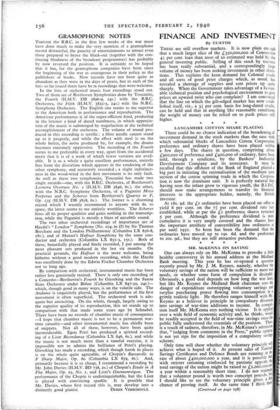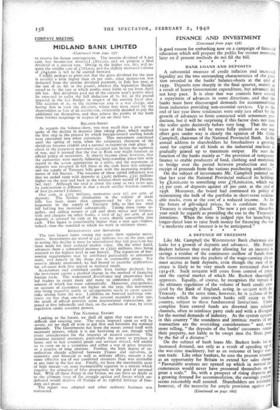MR. McKENNA ON SAVING
One can always rely on Mr. McKenna to provoke a little healthy controversy in his annual address at the Midland Bank meeting. This year he has re-opened a question recently posed by Mr. J. M. Keynes, namely, whether the voluntary savings of the nation will be sufficient to meet war needs, or whether some form of compulsion is desirable Obviously, a good deal depends on how long the war lasts, but like Mr. Keynes the Midland Bank chairman sees the danger of expenditure outstripping voluntary savings and surplus purchasing power flowing into consumption in a grimly realistic light. He therefore ranges himself with Mr. Keynes as a believer in principle in compulsory diversion into savings of war-time additions to income. In compul- sion itself Mr. McKenna sees nothing vicious It is applied over a wide field of economic activity and, he thinks, would be readily accepted in the field of war-time savings once the public fully understood the essentials of the position. Theto is a touch of sadness, therefore, in Mr. McKenna's admission that, "judging from comments in the Press," public opinion is not yet ripe for the imposition of a compulsory savings scheme. Only time will show whether the voluntary principle a, achieve what is hoped of it. At present sales of Nation' Savings Certificates and Defence Bonds are running at the rate of about L400,000,000 a year, and it is possible dul with stricter rationing reinforced by patriotic appeals total savings of the nation might be raised to LI,0o0,000, a year within a reasonably short time. I do not maintain that a volunteer pound is worth two conscript pounds, hal I should like to see the voluntary principle given a fail chance of proving itself. At the same time I think thef (Continued on page 158)
FINANCE AND INVESTMENT
CCominued from page 156) is good reason for embarking now on a campaign of financial education which will prepare the public for sterner measures later on if present methods do not fill the bill.







































 Previous page
Previous page